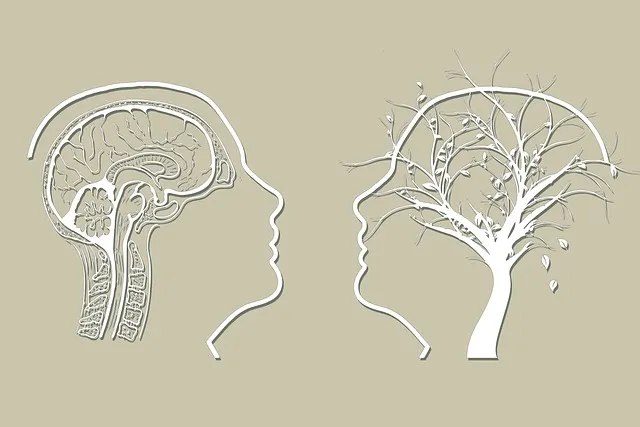The Littleton Kaiser Permanente mental health department (LPMD) faces the challenge of accurate mental illness diagnosis through a holistic, integrated approach combining traditional assessments with innovative techniques like Mindfulness Meditation. They prioritize staff training, utilize data-driven tracking, and implement collaborative efforts, technology, and accessible education to enhance diagnostic accuracy, reduce misdiagnosis rates, and improve patient care precision, setting industry standards.
Mental illness diagnosis accuracy is a critical aspect of patient care, with improvements significantly impacting treatment outcomes. This article delves into the efforts made by Littleton Kaiser Permanente’s mental health department (LPMD) to enhance diagnostic precision. We explore the challenge of diagnosing mental illnesses, highlighting their complexity and variability. The discussion focuses on LPMD’s innovative strategies, including departmental collaboration and advanced tools. Additionally, we examine comprehensive training programs and their role in improving accuracy, as well as tracking progress through successful measurement metrics.
- Understanding the Challenge: The Complexity of Mental Illness Diagnosis
- Littleton Kaiser Permanente's Approach: A Focus on Departmental Collaboration and Innovative Tools
- Enhancing Accuracy through Comprehensive Training and Education
- Tracking Progress: Measuring Success in Diagnosis Improvement Efforts at LPMD
Understanding the Challenge: The Complexity of Mental Illness Diagnosis

Diagnosing mental illness accurately is a complex challenge due to its multifaceted nature and wide range of presentations. The human mind is intricate, and disorders like depression, anxiety, or schizophrenia can manifest differently in each individual. What may be indicative of one person’s struggle could be entirely different for another, making diagnosis a delicate process. This complexity is further compounded by the presence of comorbid conditions, where individuals might suffer from multiple mental health issues simultaneously, adding layers of complexity to assessment and treatment planning.
The Littleton Kaiser Permanente mental health department recognizes this challenge and has been at the forefront of initiatives aimed at improving diagnostic accuracy. They emphasize a holistic approach, incorporating not just traditional assessments but also innovative strategies like Mindfulness Meditation, which can aid in understanding and managing emotional healing processes. By integrating such practices, they strive to enhance mental wellness and ensure more precise diagnoses, catering to the diverse needs of their patients.
Littleton Kaiser Permanente's Approach: A Focus on Departmental Collaboration and Innovative Tools

Littleton Kaiser Permanente has taken a pioneering approach to enhancing mental health diagnosis accuracy by prioritizing departmental collaboration and leveraging innovative tools. The organization recognizes that effective treatment hinges on precise assessments, so they’ve fostered an environment where various mental health departments work in unison. This collaborative effort ensures that patients receive holistic care by integrating knowledge from different specialties.
Furthermore, Littleton Kaiser Permanente has implemented cutting-edge technologies to streamline diagnosis processes. These include digital assessment tools designed to capture nuanced patient experiences and advanced analytics that aid in identifying patterns indicative of specific mental health conditions. Additionally, the organization conducts regular staff training on emotional regulation and stress management workshops, equipping healthcare professionals with the latest evidence-based practices. They also emphasize empathy building strategies, fostering a supportive atmosphere where patients feel heard and understood, which is crucial for accurate diagnosis and treatment adherence.
Enhancing Accuracy through Comprehensive Training and Education

The Littleton Kaiser Permanente mental health department has made significant strides in enhancing diagnosis accuracy by prioritizing comprehensive training and education for their staff. This initiative involves regular workshops, seminars, and online courses that cover a wide range of topics, from recognizing subtle symptoms to understanding complex conditions. By equipping professionals with advanced knowledge and skills, the department ensures more precise evaluations and personalized treatment plans for patients.
As part of these efforts, they’ve also launched the Mental Wellness Podcast Series Production, which provides accessible learning opportunities for both staff and interested individuals. Each episode delves into various aspects of mental wellness, including coping skills development, thereby fostering a culture of continuous learning and improvement within the department. This holistic approach not only boosts diagnostic accuracy but also empowers patients with better tools to navigate their mental health journeys.
Tracking Progress: Measuring Success in Diagnosis Improvement Efforts at LPMD

At Littleton Kaiser Permanente’s mental health department (LPMD), tracking progress is a key aspect of their diagnosis improvement efforts. By setting specific and measurable goals, they monitor the accuracy and efficiency of their diagnostic processes using data-driven metrics. This includes assessing the consistency of diagnoses across different providers, reducing misdiagnosis rates, and increasing timely access to care. Regular reviews of these metrics allow LPMD to identify areas for enhancement and adjust strategies accordingly.
LPMD’s commitment to improving diagnosis accuracy extends beyond numbers. They integrate burnout prevention strategies for healthcare providers, emphasizing emotional regulation and mind over matter principles to maintain a supportive work environment. These measures not only enhance the well-being of the mental health team but also contribute to more precise and compassionate patient care.
Mental illness diagnosis accuracy has long been a complex challenge, but with concerted efforts like those exemplified by Littleton Kaiser Permanente’s innovative approach, significant progress is being made. By fostering departmental collaboration and implementing cutting-edge tools, LPMD’s strategies have shown promise in enhancing diagnostic precision. Comprehensive training programs and continuous tracking of measurement metrics further strengthen these improvement initiatives. As these methods are refined and scaled, the mental health department at Littleton Kaiser Permanente continues to lead the way in ensuring accurate diagnoses, ultimately improving patient outcomes and care quality within the LPMD network.






